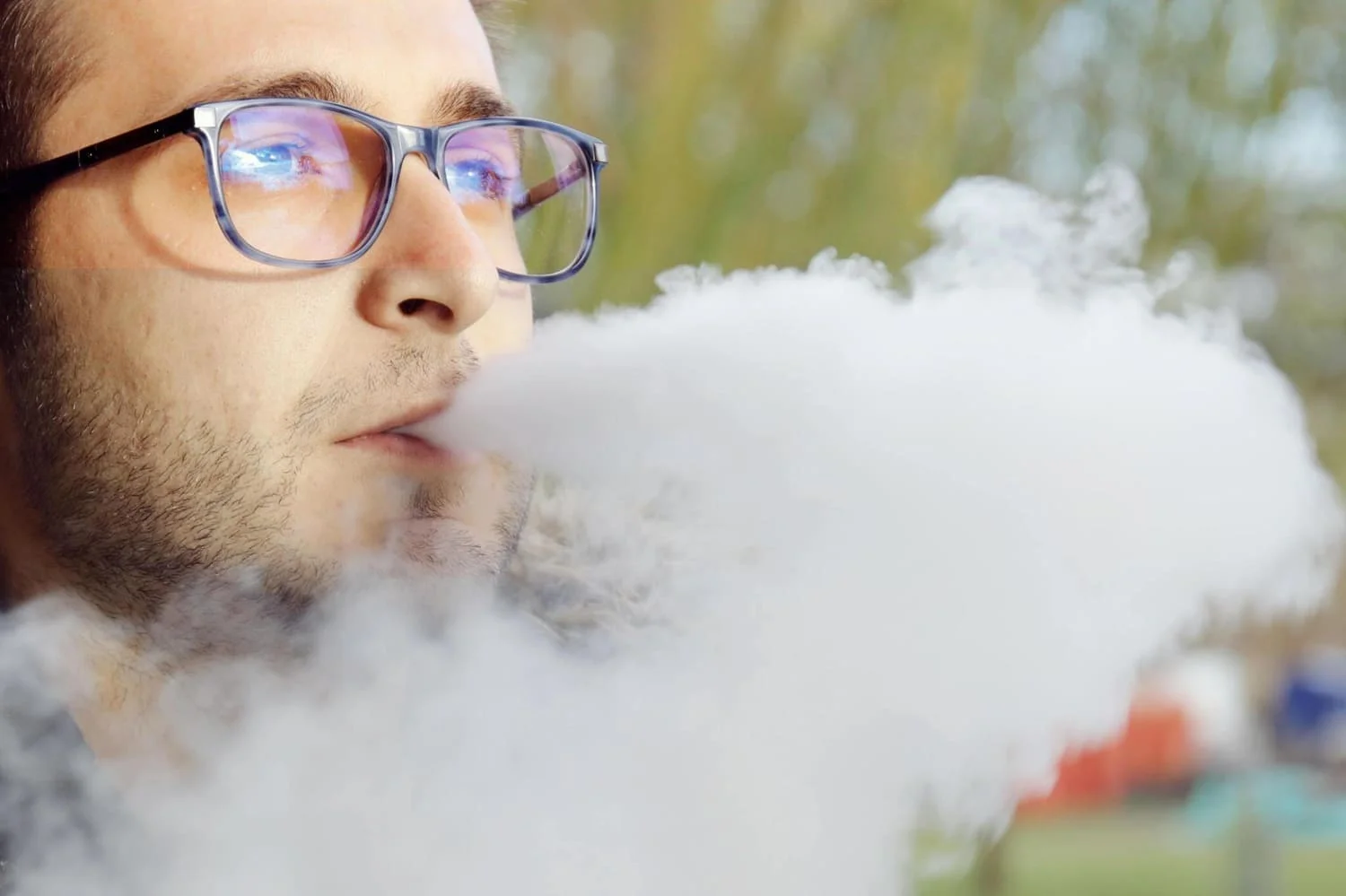Acupuncture for Vaping Cessation
Acupuncture for Vaping Cessation
Did you know that quitting vaping is way more difficult than quitting smoking? The average nicotine dose in cigarettes is usually 2-3 times lower than in e-liquid (aka vape juice, vape liquid). That’s why it is so difficult. Let’s discuss how to make it easier for your mind and body.
How to Quit Vaping

Quitting vaping often begins with understanding your motivations and finding personalized strategies. Start by recognizing why you want to quit – whether it’s for health reasons, financial concerns, or taking control of your habits.
It is worth saying that gradually lowering nicotine in your e-liquid will NOT help you. In such situations, people usually say something like “You should do it slowly, it is like running very fast and then stopping in one moment”. Unfortunately, it is not so. Among many ways to quit vaping the only one that works is to just…stop doing that. It may sound too stupid, but it’s true. The only way to stop is to throw away your vape (or sell it, give it to your friend, or whatever, just don’t leave it at your location), and never vape again.
But there are still ways to stop vaping and make it easier, though such strategies vary from person to person. You may buy yourself some tasty treats, go to the gym, play video games, visit acupuncture or other TCM-related sessions.
How long does it take to get addicted to Vaping
Becoming addicted to vaping varies for each individual. Factors like frequency of use, nicotine levels, and personal susceptibility play roles. Some people may feel a dependency develop within a few weeks of consistent vaping, while others might take longer. The addictive nature of vaping stems from nicotine, a substance known for its addictive properties. However, addiction doesn’t occur overnight; it often builds gradually over time with continued and regular use, impacting each person differently. If you used to smoke and then moved to vaping as a “healthier” alternative, then vaping addiction will appear almost instantly.
How long does it take to quit Vaping
The timeline to quit vaping differs for everyone, influenced by factors like nicotine dependence, duration of use, and individual resilience. Some may successfully quit within weeks, while others may experience more prolonged vape withdrawal symptoms and a lengthier process, up to a few months. Teen vaping might face additional challenges due to the developing brain’s vulnerability to addiction. Withdrawal symptoms like cravings and mood changes can vary in intensity and duration. The quit vaping timeline is personal, but most people who quit vaping say that the first 10-15 days are the most difficult.
What does vaping do to your body and lungs
The inhalation of aerosol from vaping devices exposes lungs to harmful substances like nicotine, ultrafine particles, and volatile organic compounds. While research is ongoing, studies indicate that these elements can irritate the lungs and airways, potentially leading to shortness of breath, coughing, and increased susceptibility to respiratory infections.
Moreover, some incidents of severe lung injury, known as EVALI (E-cigarette or Vaping Product Use-Associated Lung Injury), have been linked to vaping, although these cases are relatively rare. The long-term effects of vaping on lung function and overall respiratory health remain uncertain and continue to be a subject of study. As such, it’s important to understand that vaping poses potential risks to lung health, and caution should be exercised when using these products. Among the most “popular” health issues are:
- Shortness of breath.
- Increased heart rate.
- Dizziness.
- Morning nausea.
- Feeling insufficient air in the lungs, regularly experiencing difficulty breathing.
Signs of Vaping addiction
Signs may include increased dependence on vaping, persistent cravings, irritability or mood swings when unable to vape, and prioritizing vaping over other activities. Physical symptoms such as throat irritation, coughing, or nicotine withdrawal symptoms when attempting to cut down can also indicate addiction. Additionally, a noticeable decline in focus or social withdrawal due to excessive vaping might signal addictive behavior.
Why is Vaping bad for teens

Vaping poses specific risks for teens due to their developing brains and bodies. There are many dangers of vaping for teens, even more than for adults. Nicotine, present in most vaping products, can harm the developing adolescent brain, affecting memory, attention, and impulse control. Furthermore, the appeal of flavored e-liquids can entice teens vaping, leading to nicotine addiction and potentially serving as a gateway to other substances.
The habit-forming nature of nicotine makes teens more susceptible to addiction, impacting their cognitive functions and increasing the risk of future substance use. Additionally, vaping’s long-term effects on lung health remain uncertain, raising concerns about respiratory issues in young users.
Experience the best acupuncture to stop Vaping at Pulse Acupuncture Center
At Pulse Acupuncture Center, our dedicated acupuncturist Brooklyn offers personalized treatments aimed at supporting individuals on their difficult path to quitting vaping. Using auricular acupuncture, a technique targeting specific points on the ear associated with addiction, our practitioner helps alleviate cravings and vape withdrawal symptoms.
In conjunction with auricular acupuncture, cupping therapy may be integrated to promote detoxification and reduce discomfort during the quitting process. Our practitioner’s approach is rooted in understanding each person’s vaping patterns.
Our goal isn’t just about quitting vaping; it’s about helping to lead healthier lives. Through compassionate care and specialized techniques, our center aims to provide a supportive environment for those seeking to break free from deadly vaping habits.

-
Marina Doktorman, M.S., L.Ac., is an experienced acupuncturist who obtained her Masters of Acupuncture from the Tri-State College of Acupuncture in New York City in 2001. During her studies, she focused on Chinese Herbology, a branch of Traditional Chinese Medicine (TCM) that utilizes herbs to complement acupuncture treatments. Marina is licensed in both New York (NY) and New Jersey (NJ) and holds a Diplomate of Acupuncture from the National Certification Commission for Acupuncture and Oriental Medicine (NCCAOM), indicating her expertise in the field.
Why Pulse Acupuncture?

Experience
Marina Doktorman, L.Ac. has over 20 years of clinical experience.

RELAXATION
At Pulse Acupuncture, we aim to cultivate a spa-like environment.

Comfort
All of our needles are of the highest quality for painless insertion.
Patient Reviews in Brooklyn

Marina is very accommodating, kind, and attentive, and her staff is a pleasure to deal with. I highly recommend Pulse.
Acupuncture has truly changed my life and has helped me in ways I didn’t even know were possible.
I started doing acupuncture to balance my hormones after 2 years of unsuccessful fertility treatments. When I started seeing Marina, my periods were starting to be regular and I was dealing with a few different symptoms which we started treating right away (constipation, random headaches, body aches)… in the last 3 years I have not been sick (no flu, have never tested positive for COVID) - Marina even treated me for allergies more than a year ago during an allergy episode in changing seasons.
Also want to mention Larissa as I started seeing her in Marina’s beautiful office and she’s also contributed to my wellness journey. Acupuncture is my favorite wellness practice, I see them regularly and have never felt better. I sometimes just tell them whatever I’m thinking/feeling knowing they will stick some needles in different places of my body and I come out floating and feeling so relaxed.
Excellent service- great results- highly recommended ~!
Marina is not only incredibly knowledgeable, but also very calming and has great bedside manners. If you're looking for a fantastic acupuncturist I can't recommend her enough!!
After 10 minutes of the procedure, you get into a different reality. Marina is knowledgeable, answers all the questions. After the procedure, the skin of the face glows, the body becomes lighter by a couple of pounds. I've been looking for such a procedure and state of mind for a long time.
I am beyond grateful to Marina, because after trying so many things, I almost lost hope. highly recommend Pulse Acupuncture and Marina for anyone seeking relief from pain or other health concerns.
The acupuncture sessions themselves are incredibly relaxing and therapeutic. Marina's gentle touch and precise needle placement always leave me feeling calm and rejuvenated. She also incorporates other techniques, such as cupping, which have been very beneficial for my overall health and wellbeing.
In addition to her skill as an acupuncturist, Marina is also a wonderful person to work with. She is warm, friendly, and genuinely cares about her clients' wellbeing. I always leave our sessions feeling refreshed and uplifted, both physically and mentally.
Overall, I highly recommend Pulse Acupuncture and Marina for anyone looking for high-quality acupuncture and personalized care. Thank you, Marina, for your exceptional service and dedication to helping others achieve optimal health!
Vaping Cessation Acupuncture - FAQ
Can acupuncture really help me quit vaping?
While acupuncture is not a guaranteed method for quitting vaping, some people have found it to be helpful as part of a holistic approach to quitting. It can reduce stress and cravings, making the withdrawal process more manageable.
How does acupuncture work for vaping cessation?
Acupuncture points related to addiction and stress reduction are targeted to help balance the body’s energy. This can help alleviate cravings and ease withdrawal symptoms, such as anxiety and irritability, making it easier to quit vaping.
Is acupuncture safe for vaping cessation?
Acupuncture is generally considered safe when performed by a qualified and licensed practitioner. However, it’s essential to discuss your vaping cessation plan with a healthcare professional and ensure they are aware of any existing health conditions or medications you are taking.
Are there any side effects of acupuncture for vaping cessation?
Acupuncture is generally considered safe and has minimal side effects. You may experience slight bruising or soreness at the needle insertion points, but serious side effects are rare. Always choose a qualified and licensed acupuncturist to minimize any risks.
Contact us
Acupuncture therapy at Pulse Acupuncture Practice, at Clifton, NJ and Williamsburg, Brooklyn, NYC offers unique combination of various cupuncture types for healing on all levels: emotional, spiritual and physical by integrating ancient wisdom of energy healing with modern acupuncture techniques.



















































